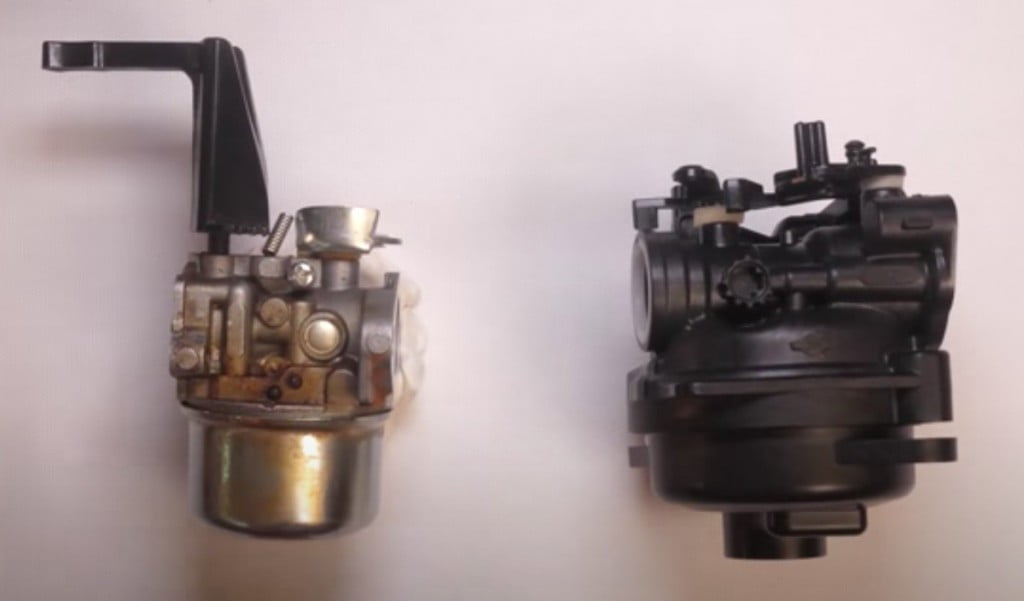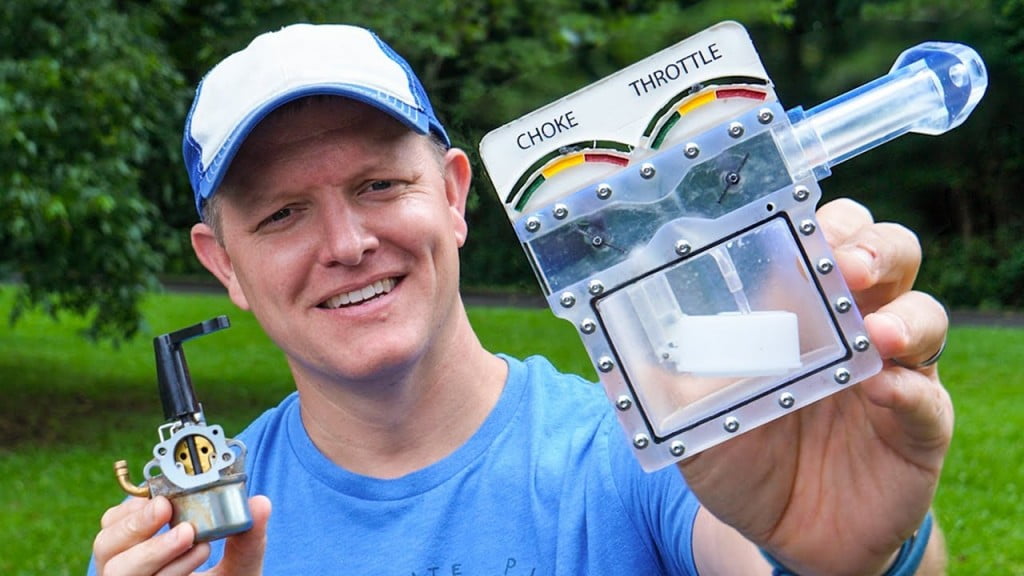In this Automobile Technolgy Section, we shall explain the working of a carburettor with the help of a video for a better and quick understanding. For the ease of visualization, the construction of the carburetor is done using 3D printed transparent components which shows clearly what goes on inside it. Essentially, a carburettor is a device that enables the breathing of the engine. It sucks the fresh air from the atmosphere, mixes it with the fuel thoroughly and pushes the mixture into the engine. Proper mixing of the air and fuel is of utmost importance, as the power output, fuel efficiency and exhaust gas emissions depend entirely on the ratio of air to fuel. Hence, all these parameters can be controlled by varying the air-fuel ratio.
Also read: Types of Chassis Frames – Monocoque, Ladder Frame, Backbone & Tabular!
Working of a Carburettor
The main components of a carburettor are the Venturi, Valves and Bowl. A venturi is responsible for the mixing of air and fuel and the bowl stores the fuel. The air gets sucked into the first half of the venturi and as it passes through the middle, the shape of the venturi is such that there is the formation of a neck which decreases the pressure and creates a vacuum. The jet connecting the fuel in the bowl to the venturi enables the fuel to flow in the direction of the vacuum. Due to the intake stroke, the valves open up and take the air-fuel mixture into the cylinder for combustion. The air entering the venturi as well as the air-fuel entering the cylinder of the engine is controlled by opening and closing of the valve.
Also read: What are SOHC, DOHC & OHV – How do these affect mileage and power?

A car could have carburettor(s) for any numbers of cylinders. However, the crucial aspect is the proper control of the timing of the opening and closing of valves according to the 4-strokes of the engine. Also, the adequate mixing of the air and fuel is done inside the carburetor. The valves are operated by the accelerator pedal of the car and when one requires more power (or quick acceleration) he/she presses down the throttle completely enabling the complete opening of the valves, in turn, allowing maximum air into the venturi and cylinder. Valves need to be precise because if the valves remain open during the compression or power stroke, the valuable power produced by the engine will go to waste.
Also read: Working of Synchronous and Induction Electric Motors in Electric Cars (EVs)!
We hope this video explains the working of a carburettor in detail and for more of such interesting topics related to Automobile Engineering, follow Car Blog India and head to the Automobile Technology Section to read up on complex technologies used in vehicles in simple words.
Also read: Working of Roots, Twin-Screw & Centrifugal Superchargers – Pros and Cons!


